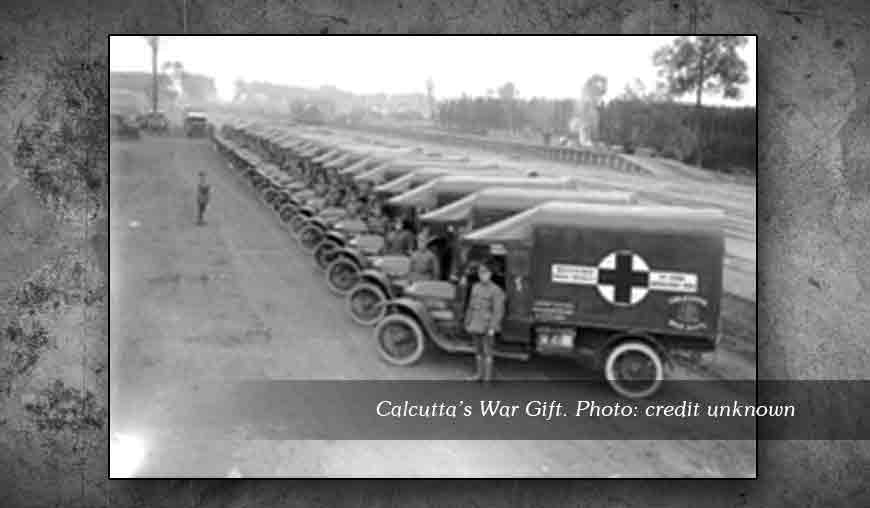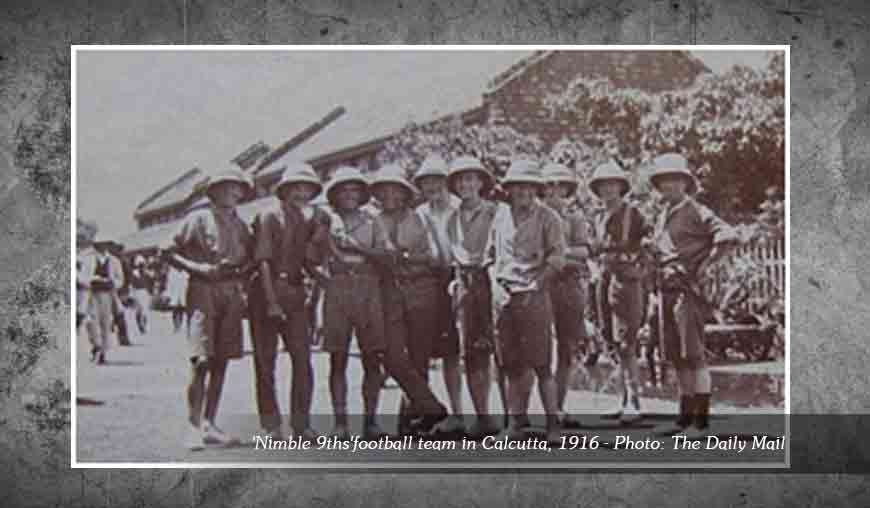Footprints of World War I in Kolkata

Tuhin K. Roy is a consultant on metallurgy with avid interest in Military History as also about Kolkata and Bengal
Before we look into Kolkata’s memorials and plaques, honouring the War Dead of WWI, we must know “why” that four year-long human tragedy unfolded in August 1914. War became inevitable as Germany, Austria-Hungary, Russia, France, and Great Britain, for reasons of greed, power, and aggrandisement, all hungered to “settle once and for all” the festering sores in Europe viz. the Balkans (present day Slovenia, Croatia, Bosnia & Herzegovina, Montenegro, Serbia, Kosovo, Albania, Romania, Bulgaria, Macedonia, and Greece), Alsace Lorraine (area between France and Germany), and Trentino & Trieste (area between Italy and present day Austria and part of Slovenia).
There was also the Ottoman Empire (present day Turkey, the Middle East, Iraq and parts of the Balkans) – a fast crumbling edifice unable to subdue the aspirations of its communities that were bifurcated by religion, language and culture. It also seemed logical that the Straits of Dardanelles and the Sea of Marmara were of sufficiently strategic importance to cause Germany to befriend the Turks. It could choke its adversary Russia whose trade (about 30%) sailed through these waters.
Elsewhere, large tracts of the West and South-West Africa offered themselves as prime candidates where colonial boundaries could be re-cast. Germany, a late starter in colonisation, needed a larger stake to exploit the abundant natural resources to further its industrialization and economy. Assassination of the heir apparent, Archduke Ferdinand Joseph, and his wife, in Sarajevo offered the Hapsburg Empire of Austria-Hungary the most convenient excuse to crush its problematic neighbour, Serbia. Germany too was becoming increasingly wary of “encirclement” by France, Russia and Great Britain. Hence, what better way for Berlin than to issue a “blank check” to Vienna and in doing so becomes a dominant power.
Britain, which since the Battle of Waterloo, 1815, had kept aloof of European affairs, felt threatened by Germany (both countries had embarked on ambitious plans on an unprecedented naval build up). The War seemed the perfect opportune to call for a national unity by sweeping aside the brewing political and social contentions faced on the home front like Ireland, voting rights, trade unionism and an army veering towards a mutiny. Britain could throttle the Imperial German Navy that had already built the Kiel Canal.
Dark storm clouds gathered as telegraphs pulsated between Vienna, Berlin, St Petersburg, Paris and London. “Dear Dickie”, “Dear Willie”, “Dear Nicky”2 soon gave way to threats and ultimatums.The German First, Second and Third Army, adopting the Schlieffen Plan, stormed across Belgium, bombarding and plundering towns and villages as it went. The Belgians with made a beeline for the ports of Antwerp and Ostend to seek sanctuary as refugees in Britain.3 The King retreated furthest south ordering the dykes to be destroyed. He hoped the flooding would thwart the Teutonic Advance. It did, but caused the trenches dug thereafter to flood. During the War, the mud of the Flanders swallowed and drowned thousands of men and animals (horses and mules) on both sides.
DECLARATION OF WAR BY GREAT BRITAIN
4th Aug 1914,enthusiastic crowds gathered onto the gates of the Buckingham Palace.Britain mobilised,adhering its commitment of the Entente Cordiale4. Young men saw enlistment as an adventure and thought the war would “be over by Christmas.”News flashed across the British Empire. News to Calcutta from London was instantaneous since a few years earlier SIEMENS, the Germany Company, had laid the telegraph lines connecting the two cities.
Mahatma Gandhi declared, “We are … British citizens … our duty is clear … support … to fight with our life and property. Soon advertisements appeared in India for volunteers:“Very little danger! Good Pay!!” A half-truth; Yes, the Salary was Rs. 11 per month (present day about Rs. 25,000/-).
IN CALCUTTA:
The grey monsoonal clouds did not dampen the spirits of the notables. They, after a meeting at the Town Hall, on 14th August 1914, blessed by the Administrators, expressed their eagerness to assist by way of money, materials and manpower.
Take for example following news items:
• 26th August 1914: Bengali revolutionaries waylaid a cartload of 50 Mauser pistols and 46,000 rounds of ammunition while being unloaded at Calcutta port … Rodda & Co.’s employee Haridas Dutta took delivery … in the guise of a bullock cart driver.

• June 1916, members of the Nimble 9th Battalion8 lost 1-0, after extra time, in a football match in front of a packed stadium against Calcutta.
• Competition: Members of the 'Nimble 9ths' football team in Calcutta, 1916 Photo: The Daily Mail
Rabindranath Tagore had felt the pulse reverberating in the Chanceries and Embassies of Europe. He wrote: “The naked passion of self-love of Nations, in its drunken delirium of greed, is dancing to the clash of steel and the howling verses of vengeance …”
•10th to 16th September 1914: The closest effect of the War felt by Calcutta was financial. Businesses shut in panic on rumours that a German warship10 was nearing the Sandheads. No harm could come as the shells would fall far short. Besides, sailing up the river was risky due to the shifting sandbanks best known to local river pilots.









